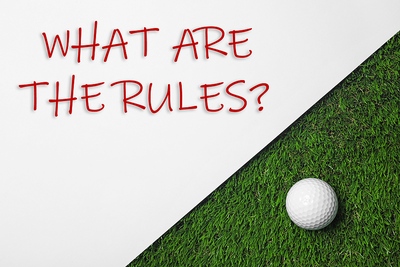
Golf, as with just about all major sports, is really well catered to by bookies when it comes to the range of markets on which punters can bet, although most punters stick to the outright tournament winner market or other outrights such as top five or top 10.
The issue that some people have with golf betting is that it can be incredibly tough to back a winner. In football the favourite in a given match is often odds-on, whilst in horse racing, though long-odds winners are quite common, in many races the jolly will be priced between 3/1 and a little under evens. In golf, even really well-fancied favourites are rarely shorter than 6/1 or 7/1 and sometimes more like 10/1 when the tournament is really open.
The other major issue is that outright bets unfold slowly over four days. That can be great in terms of giving you emotional value for money, as you get to have the thrill of a single bet lasting, hopefully, for an extended period. However, many punters want a quicker conclusion to their punt and waiting from Thursday (or earlier) through to Sunday afternoon can be frustrating.
Betting on the three-ball or two-ball market is a fantastic choice for those wanting either a bet that gives a quicker payoff, or has less variance, due to shorter odds and a greater probability of landing a winner.
What is Two-Ball (or Three-Ball) Betting?
 This market is a simple head-to-head (or in the case of a three-ball, head-to-head-to-head!) on which player will shoot the lowest score. The standard and most typical form of the bet is based on a single round (but is available on all four rounds individually) and pits players that have been grouped to play against one another.
This market is a simple head-to-head (or in the case of a three-ball, head-to-head-to-head!) on which player will shoot the lowest score. The standard and most typical form of the bet is based on a single round (but is available on all four rounds individually) and pits players that have been grouped to play against one another.
Whether there are three players or just two in a group, whichever player shoots the lowest score for the specific round will be deemed the winner of the two-ball or three-ball bet. The bet relates solely to the round in question and just applies to the named players, so where they stand in the tournament overall doesn’t matter and nor do the performances of any other players around them.
Odds in this market are obviously much shorter than you will find with many other golf bets because you are picking one from three (at most) as opposed to one from 150 or more. It is rare to see odds much shorter than 8/13 or much longer than about 4/1 (although you do get extremes both ways occasionally) and in general the odds are often not too far away from what you might expect in a relatively even Premier League game (in the 1X2 market).
You will often find players available either side of evens and these sorts of odds are popular with punters who like accumulators. Accas are not usually associated with golf betting but two and three-balls are perfect for this. If you combine three or four at the sort of odds that are typical you can soon rack up a tidy win.
As well as accas, different bookies offer a range of variants on a standard single bet, the most common being a “mythical” grouping (note these other bets can also easily be combined into accumulators). With such a bet the bookie will create a hypothetical two- or three-ball of golfers who are not actually playing together. This will be in the same round of the same tournament, just with players teeing off at different times. The same rules apply and the only extra thing for a punter to consider with such a wager is what, if any, impact different weather conditions may have on scoring.
Other possible variations on this bet may see the wager split over two (or even more) rounds of a tournament, or a handicap applied to the grouping. In the case of a handicap one or more players will receive a hypothetical shot advantage over the player who is considered the most likely to shoot the lowest round.
Rules to Note
 This is a fairly straightforward market and, as said, whichever player shoots the best 18-hole total for a given round is the winner (subject to any handicap where relevant). However, there are a few things worth being aware of to avoid any unpleasant surprises when it comes to how your bet is settled.
This is a fairly straightforward market and, as said, whichever player shoots the best 18-hole total for a given round is the winner (subject to any handicap where relevant). However, there are a few things worth being aware of to avoid any unpleasant surprises when it comes to how your bet is settled.
First of all you need to be familiar with dead heat rules, as these will often come into play. With a two-ball bet you may or may not be offered the tie as a third option. Where it is available, usually at relatively lengthy odds, the dead heat will not be a possibility. However, if a draw or tie is not listed in two-balls and, as far as we know always when it comes to three-balls, if two players (or three) shoot the joint-lowest score the bet will be settled on dead heat rules.
In short that means that in the event of two players having the same score, assuming of course that the score is lower than that of the third player, half of your stake will be paid as a winner and half will be treated as a losing bet.
The other rules to be aware of concern what happens if one of the players in a named group does not start or alternatively does not finish the round. Rules vary from bookie to bookie and depending on the exact circumstances but most sites allow bets to stand if one player withdraws mid-round. Equally almost all bookmakers void the bet if any of the listed players withdraw before the start of the round related to the bet that has been placed.
